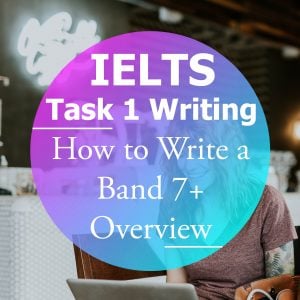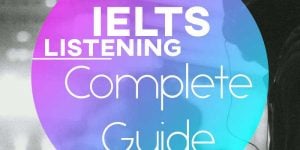Recommended For You
-

Latest IELTS Writing Task 1 2024 (Graphs, Charts, Maps, Processes)
These are the most recent/latest IELTS Writing Task 1 Task topics and questions starting in 2019, 2020, 2021, 2022, 2023, and continuing into 2024. ...
-

Recent IELTS Writing Topics and Questions 2024
Read here all the newest IELTS questions and topics from 2024 and previous years with sample answers/essays. Be sure to check out my ...
-

-

IELTS Writing Task 1: How to Write a Band 7+ Overview
I find that one of hardest things for my students is how to analyse the chart efficiently. It’s a skill that you have to ...
-

The Complete Guide to IELTS Listening (FAQ)
This is the complete guide to IELTS listening organized by real student questions! If you can’t find your question, please put it in the comments or ...
-

The Complete Guide to IELTS Writing Task 2
Welcome to the complete guide for IELTS writing task 2 - everything you need to know to get a top score! The IELTS writing exam is ...

I want to ielts with my self preparation can you suggest me best material or books.
I suggest you read all the great advice on this website, join our facebook group (http://bit.ly/2k5ZEYL) and also sign up for our mailing list to receive two free PDFs to help with your Task 1 Writing – https://howtodoielts.com/mailing-list/
Many people like to wear fashionable clothes.
Why do you think this is the case.
Is this a good thing or bad thing?
What type of essay is this?
It is an opinion agree/disagree essay!
I hope someone can answer this question. I’d really like to know how the tests are run on the day. Are question and answer sheets for a section handed out at the beginning of the time allocated for that section and collected at the end of that time before Q&A sheets are handed out for the next section? Eg Writing Task 1 Q&A sheets are handed out at 8am and collected at 8.20; Writing Task 2 Q&A sheets are handed out at 8.20 and collected at 9; Listening Q&A sheets are handed out at 9 and collected at 9.30; Reading Q&A sheets are handed out at 9.30 and collected at 10.30.
If Q&A sheets are handed out separately for each section, are Writing Tasks 1 & 2 sheets handed out together, so test-takers can decide the order in which to work on them?
OR Or are all Q&A sheets handed out at the start of the 2.5 hours and all collected at the end?
For writing you will get both tasks and can divide up the test the way you want.
But the other sections are not handed out then. So you will do writing – then they collect it – then move on to the next section.
Does that make everything clear, Lake?